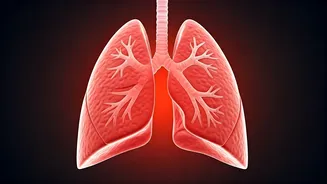Food vs. Lungs
The food we consume significantly impacts various aspects of our health, and our lungs are no exception. The respiratory system is constantly exposed to the
external environment, making it vulnerable to inflammation and damage caused by certain dietary choices. Understanding the connection between food and lung health is crucial for maintaining overall well-being. This understanding empowers individuals to make conscious choices that support healthy lung function and improve their respiratory health.
Processed Meats
Processed meats, such as bacon, sausage, and deli meats, often contain high levels of nitrates and nitrites. These compounds can trigger inflammation in the airways, potentially leading to airway constriction and increased susceptibility to respiratory issues. Regularly consuming processed meats has been associated with a higher risk of chronic obstructive pulmonary disease (COPD) and other lung problems. It is, therefore, advisable to limit their consumption to safeguard against these risks.
Sugary Drinks
Sugary drinks, including sodas, fruit juices, and sweetened beverages, are linked to an increased risk of asthma and other respiratory ailments. High sugar intake promotes inflammation throughout the body, including the lungs. Furthermore, these drinks often lack essential nutrients and can contribute to weight gain, which can exacerbate respiratory problems. Choosing water, herbal teas, or unsweetened alternatives is a beneficial way to improve lung health.
Fried Foods
Fried foods often contain trans fats and other unhealthy compounds that can contribute to inflammation in the body. The cooking process can also produce harmful chemicals that, when inhaled, may irritate the lungs. Consuming these types of foods regularly can exacerbate symptoms of existing respiratory conditions and increase the risk of developing new ones. Choosing healthier cooking methods, such as baking, grilling, or steaming, can aid in lung health.
Refined Grains
Refined grains, such as white bread, white rice, and pasta, have a high glycemic index, which causes rapid spikes in blood sugar levels. This can promote inflammation and may worsen respiratory symptoms. Moreover, refined grains lack the fiber and nutrients found in whole grains, which are essential for overall health, including lung function. Opting for whole-grain alternatives, such as brown rice, whole-wheat bread, and oats, offers a beneficial route to lung health.
Dairy Products
For some individuals, dairy products can increase mucus production, which may worsen symptoms of asthma, allergies, and other respiratory conditions. The proteins found in dairy can trigger inflammation in certain people, leading to congestion and breathing difficulties. If dairy seems to exacerbate respiratory symptoms, consider alternatives like plant-based milk products or consult with a healthcare professional to identify potential sensitivities.
Salty Foods
Consuming excessive amounts of salt can lead to fluid retention, which may place an additional burden on the lungs. High sodium intake can also exacerbate symptoms of certain respiratory conditions, like asthma and COPD, by causing inflammation. Therefore, it is important to monitor salt intake and choose fresh, unprocessed foods to promote healthier breathing. Reading food labels carefully and using herbs and spices to flavor meals can help in controlling sodium intake.



















